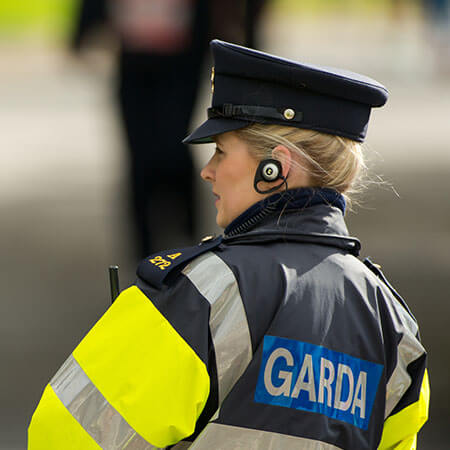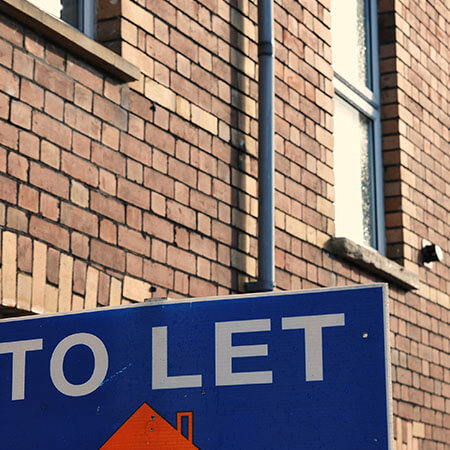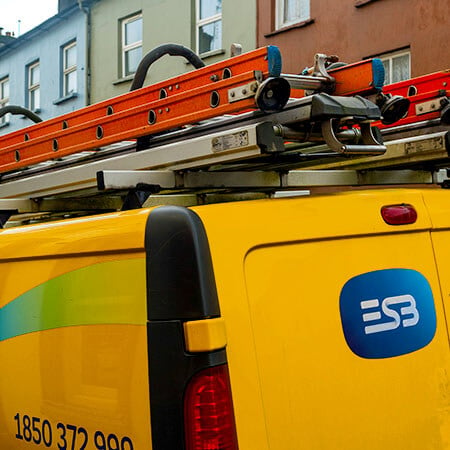In 2019, Ireland recovered and recycled one million tonnes of waste for the first time. That year, 67.5% of all suitable materials were recycled and we significantly exceeded our EU waste targets. More recently, Dublin City Council noticed a further 18% jump in recycling during the pandemic.
Dubliners are switched on to how important recycling is, but it can take some time to get used to our system of recycling bins. If you recently relocated to the city, here is everything you need to know about recycling and waste disposal in Dublin.
Household waste collection in Dublin
Most household waste is picked up at the roadside. Waste collectors use a wheelie bin system and users are charged each time a bin is lifted. The cost varies depending on the type of waste collected. General waste collection costs the most, while recyclable materials require a minimal fee.
If you live in an apartment, you may share a communal bin system. Otherwise, you’ll need to contact a waste collection service to set up a plan and receive your bins.
Four companies offer bin collections in Dublin:
Money Guide Ireland monitors average bin charges for each company, so check their website for the latest updates on waste collection costs in Dublin.
It’s also worth noting that some waste collectors offer bin bag collection services. In this case, you’ll need to purchase a pre-paid tag or bag for your waste. Individual collectors will tell you where they can be bought.
If you’re just settling into your new home in Dublin, you can find out how to set up other essential utilities here.
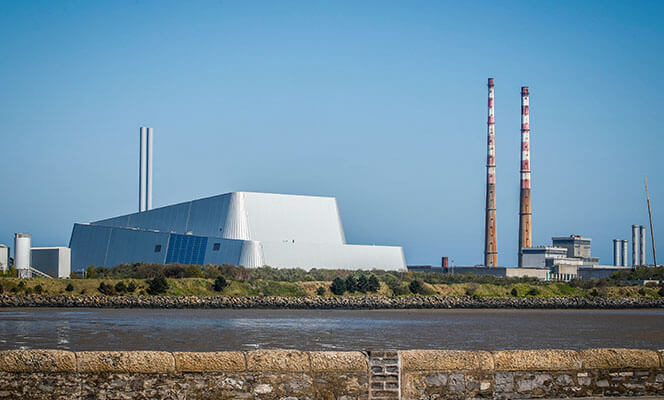
The Dublin Waste-to-Energy Facility at Poolbeg
How to sort and recycle waste in Ireland
Waste collectors have a colour-coded system for separating your waste. Usually, they provide a green bin for recyclables and a brown bin for compostable waste. Then there’s a black bin for general waste that can’t be added to the other two bins.
Let’s take a closer look at what can be put in each bin.
Green bins – recyclables
Green bins take recyclable material like:
- Paper
- Cardboard
- Food tins
- Drink cans
- Tetra Pak cartons, such as milk cartons and juice boxes
- Hard plastics containers, like shampoo bottles and water bottles
Make sure your recyclables are clean and dry before you dispose of them.
Brown bins – organic waste
Brown bins take organic waste from your kitchen and garden such as:
- Coffee grounds and filters
- Cooked and raw foods
- Dairy products
- Eggs and eggshells
- Fruits, vegetables and peels
- Tea leaves and tea bags
- Meat, bones and fish
- Hedge clippings, twigs and thin branches
- Leaves, plants, weeds and grass
Black bins – general waste
Dublin’s black bins take all other waste such as:
- Nappies
- Soiled food packaging
- Bathroom waste
- Animal waste
- Cold ashes
- Fast food cup lids
- Black plastic bags
- Used candles
Recycling glass bottles and textiles
Glass bottles can’t be disposed of in your household bins. They can be thrown into the bottle banks located throughout the city however. Google Maps pinpoints most of them. Alternatively, you can use this handy search tool from Repak to find one nearby.
At some of these facilities, you can also recycle aluminium cans, old clothes and textiles. Local charity shops also accept clothes, furniture and other household items that are in good condition, while the city’s homeless charities are always happy to receive donations of warm clothes, like coats, hats and scarves.
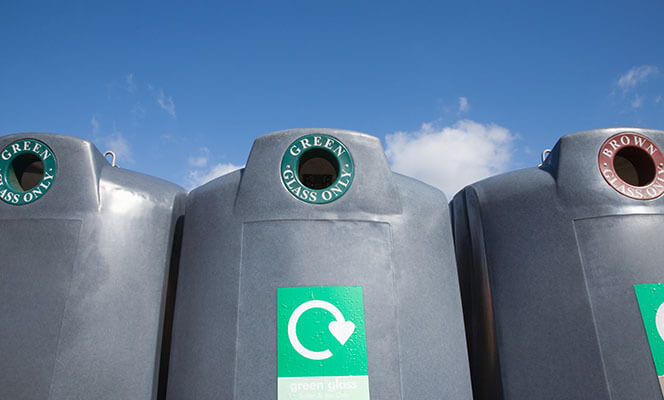
What about batteries?
All shops that sell batteries are obliged to take back old batteries of the same type. So you can leave your used batteries in supermarkets, jewellers, garages and corner shops across the city.
The service is free and you don’t need to buy new batteries to avail of it. Batteries are also accepted at local community recycling centres in Dublin.
How to dispose of other types of waste
One of the benefits of living in Dublin is that local authorities try to make it as easy as possible to recycle. To dispose of waste that can’t be put into household bins, they provide bring centres and recycling centres around the city.
Recyclables, electrical appliances, white goods, batteries, light bulbs and ink cartridges are all accepted here free of charge. The likes of old paint, mattresses, timber, scrap metal and bulky garden waste can also be responsibly disposed of for a fee. (Eco mattress recycling takes old mattresses too.)
The price depends on the materials you dispose of. For example, Dublin City Council charges €2 for a bag of green garden waste or €4 for a bag of general household waste. Each centre displays their charges.
To find a list of Dublin recycling centres near you, click through to your local authority: Dublin City Council, Fingal County Council, South Dublin County Council, Dun Laoghaire Rathdown County Council.
What happens to my waste?
In Ireland, reprocessing plants usually turn recyclable plastic, paper and glass into new materials. Organic waste from brown bins is composted and then used as fertiliser.
Sometimes general waste is treated in preparation for recycling. But more often it either goes to landfill or, if suitable, an incinerator. In 2017, a waste-to-energy plant began to play a key role in waste disposal in Dublin. Based on the Poolbeg Peninsula, the plant converts waste into electricity and supplies energy to 80,000 homes around the city.
